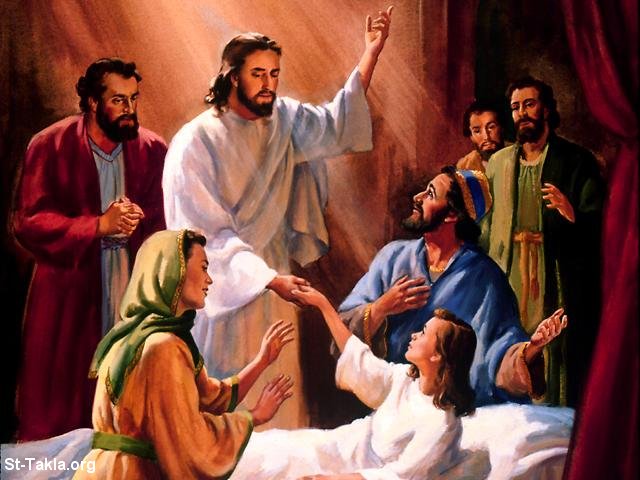Sabbath School Lesson for October 22-28, 2022
Overview of Lesson 5
What did resurrection, or the raising of the dead, look like for those before Christ’s crucifixion and resurrection? These are the stories studied this week:
- Moses, the first and only human raised to life who was taken to heaven, and not just returned to life on earth–Sunday
- the son of the widow of Zarephath, through Elijah; and the son of the Shunammite woman, through Elisha–Monday
- the son of the widow of Nain, by Jesus–Tuesday
- the daughter of Jairus, by Jesus–Wednesday
- Lazarus, the brother of Mary and Martha, by Jesus–Thursday
One thing is noteworthy from these examples of people brought back to life. The Scriptures reveal nothing of an afterlife experience while they were dead. Nothing is shared about things they might have seen or heard while they were not breathing. Most likely because death is a sleep, an unconscious state, just like the Scriptures tell us repeatedly both in the Old and New Testaments.
Memory Text: “Jesus said to her, ‘I am the resurrection and the life. The one who believes in me, even if he dies, will live, and everyone who lives and believes in me will never die forever. Do you believe this?’ ” John 11:25, 26 LEB (Lexham English Bible)
The Lord couldn’t be plainer about when this would happen than when He also told Daniel to “go your way till the end; for you shall rest, and will arise to your inheritance at the end of the days” (Daniel 12:13).
Most of us will wait till that glorious Resurrection Morning too. But it’s nice to know that God’s Son has the power to raise us up from death, just like He did for these people in the Bible.
Sunday: The Resurrection of Moses
In reading about Moses’ death in Deuteronomy 34:5-7, we notice several things that seem rather strange. It says here that the Lord buried Moses and “no one knows his grave to this day.” What it does not say is that he sleeps or is resting with his fathers, as with so many other reported accounts of a person’s death. Also, we learn that his eyesight had not dimmed, nor his strength diminished. Moses hadn’t just gotten old and died, like most of us either.
In Jude 9, we are given the most likely explanation for why they couldn’t find Moses’ grave. There was none needed; for his body was taken directly to heavenly Canaan. Would Michael have had this confrontation with Satan about Moses body, if his spirit were safely in heaven already? It doesn’t appear so.
There is also an account in Luke, and also in the Gospels of Matthew and Mark, about the transfiguration of Jesus on the mountain, when Peter, James, and John saw Jesus speaking in person with Moses and Elijah. We are even told the topic of their discussion. They were there to talk to Jesus about His death that was to happen later in Jerusalem. See Luke 9:28-36.
These two figures seen on the mount with Jesus (Moses, who had seen death and was given the gift of immortality, and Elijah, who went straight to heaven in a chariot, without seeing death) are thought to represent the righteous living (Elijah) and those who are dead and resurrected at the Second Coming (Moses).
Bible Verses:
Deuteronomy 32:51, 52 and 34:4-7
- Why was Moses not allowed to enter Canaan? How does this explain why Moses had good eyesight and strength, and wasn’t feeble or sickly when he died?
Jude 9
- Why was Moses’ body important in this dispute, with no mention of a spirit?
Luke 9:28-36
- What does it mean by saying that they “appeared in glory”?
- Why would they be talking to Jesus about His death?
Monday: Two Old Testament Cases
Two of God’s prophets, Elijah and Elisha, had the opportunity and privilege to be used by God to restore the precious sons of two different women.
First, Elijah brought back to life the son of the widow at Zarephath, who had unselfishly fed the prophet during the drought. Elijah prayed three times, crying out “…let this child’s soul come back to him” (1 Kings 17:21). Many translations use the word “life”, instead of “soul” here, which is certainly understandable, knowing Elijah was praying for the boy to come back to life.
We also read about Elisha, who studied under Elijah, and asked for a double portion of his spirit just before Elijah was carried away to heaven in a fiery chariot. See 2 Kings 2:9-11.
This double portion was certainly evident when Elisha was also asked to bring back to life the son of a couple in Shunem, who had provided him lodging in the upper room of their house. Recognizing the importance of breath, we are told this prophet also lay on the child and prayed, but with his mouth on his mouth, where breathing takes place (2 Kings 4:34).
These two accounts give us hope in the power of God to restore life, even long after death has claimed us.
Bible Verses:
1 Kings 17:8-24
- What part of this story stands out for you?
2 Kings 4:18-37
- How does knowing about these stories affect our faith in God’s power to restore life?
Tuesday: The Son of the Widow of Nain
In Luke 7:11-17, we read again of a precious son who was restored to life after an untimely death. This time the grief-stricken widow didn’t even ask for Jesus’ help.
Jesus and His disciples had unexpectedly run into a funeral procession at the gates of a city called Nain. Jesus soon discovered the unfortunate situation and out of compassion, He approached and touched the open coffin and told the young man to arise. He immediately sat up and spoke, and Jesus had the joy of presenting him to his mother, alive and well.
The word of this miracle spread quickly, and many called Jesus a “great prophet”. However, those closest to Him must have recognized that He was something more than a prophet. Whereas Elijah and Elisha had prayed fervently for someone to come back to life, Jesus had merely spoken the word and it was done. Only God, who alone has immortality, could do such an incredible thing in such an unusual way (1 Timothy 6:15, 16). There was indeed power in His Word that must have awed His closest, faithful followers.
Bible Verses:
Luke 7:11-13
- What may have prompted Jesus to have such compassion on this widow?
Luke 7:14, 15
- What difference was there between how Elijah and Elisha’s miracles happened and the way Jesus raised this son back to life?
Luke 7:16, 17
- Why did this miracle attract so much attention?
Wednesday: Jairus’s Daughter
So far, the biblical examples we’ve seen of resurrections seem to have centered on boys or young men. But, Jesus wants us to know that everyone is included in His promise of a new life.
When Jairus, the ruler of a synagogue, came to Jesus, asking for him to heal his dying, 12-year-old daughter, Jesus fought the multitude around Him to get to the child. Even after receiving word that she had died, Jesus continued on His way to Jairus’ house.
Upon arrival, He told the mourners, “Do not weep; she is not dead, but sleeping” (Luke 8:52). In other words, knowing the miracle that He was about to perform, the little girl’s state was not permanent. Not at all, for she would soon be back to life and be in the arms of her parents. There was no need to cry. Jesus took her hand, and, like the only son of the widow from Nain, He merely spoke and told her to get up (Luke 8:54). The only tears that followed must have been tears of joy.
Bible Verses:
Mark 5:21-24, 35-43, Matthew 9:18-26, and Luke 8:40-56
- Why do these Gospel accounts have slightly different details?
Matthew 9:35, 36
- Why did Jesus perform miracles?
- In what ways did He show His compassion?
- Why was it important to both preach and heal?
Thursday: Lazarus
Jesus performed many miracles of healing while on earth; but certainly none of them match the amazing miracle that brought His friend Lazarus back to life, after being dead four days (John 11:38, 39). There were many witnesses to this amazing feat of Christ’s power over death.
Jesus even predicted that God would be glorified by what happened that day (John 11:4). All would know for sure that God has the power to raise us up at the last day, as Martha’s faith declared so boldly, even before her brother was visibly resurrected before the crowd of mourners (John 11:24).
Jesus, once again, had only to speak the name of Lazarus, telling Him to come forth from his tomb (John 11:43). The same power that spoke our world into existence (John 1:1-4) will call forth all the dead at the end of the age and re-create us “in the twinkling of an eye” (1 Corinthians 15:51-53).
Bible Verses:
John 11:4, 11-44
- How was God glorified by this event?
- How easy will it be for God to bring all of us back to life?
Friday: Final Thoughts
There is nothing to establish definitely what happens to us when we die. Even those resurrections we studied this week left us without that information. We are invited by these examples, however, to have faith in God that there is something for us beyond the grave. Most all of Christianity agree on this hope and promise, that life eternal is certain for those who believe and know God.
There are Christians though who differ on when this resurrection takes place. Both the resurrection of the righteous and the punishment of the wicked are said by most church denominations to occur immediately upon death. You either go directly to heaven or to a place called hell, to be tormented eternally.
There are others, however, who claim that our death is a state of dreamless, unconscious sleep, as we wait for Christ’s Second Coming. Later, they say, after the millennium, will be the resurrection and punishment of the wicked, who are burned up, without root or branch (Malachi 4:1).
There are two major reasons why one belief in our after-life is more preferable than the other. If you believe your spirit, or soul, separates from your body as soon as you die, then Satan and the fallen angels have ample opportunity to disguise themselves as our loved ones and deceive us to believe anything they choose. In other words, we make ourselves targets for spiritualism, something God has warned us about (Isaiah 8:19).
The other reason to believe that death is a sleep is because to believe in a forever-burning place called hell causes many people to question the character of God. Where is the love and justice in that scenario, many have asked? That belief alone has unfortunately, but understandably, turned millions away from God.
It truly matters what we believe about death and dying, and our future hope.
Next Week: He Died for Us
To read the Sabbath School Lesson Quarterly or see more resources for its study, go to










